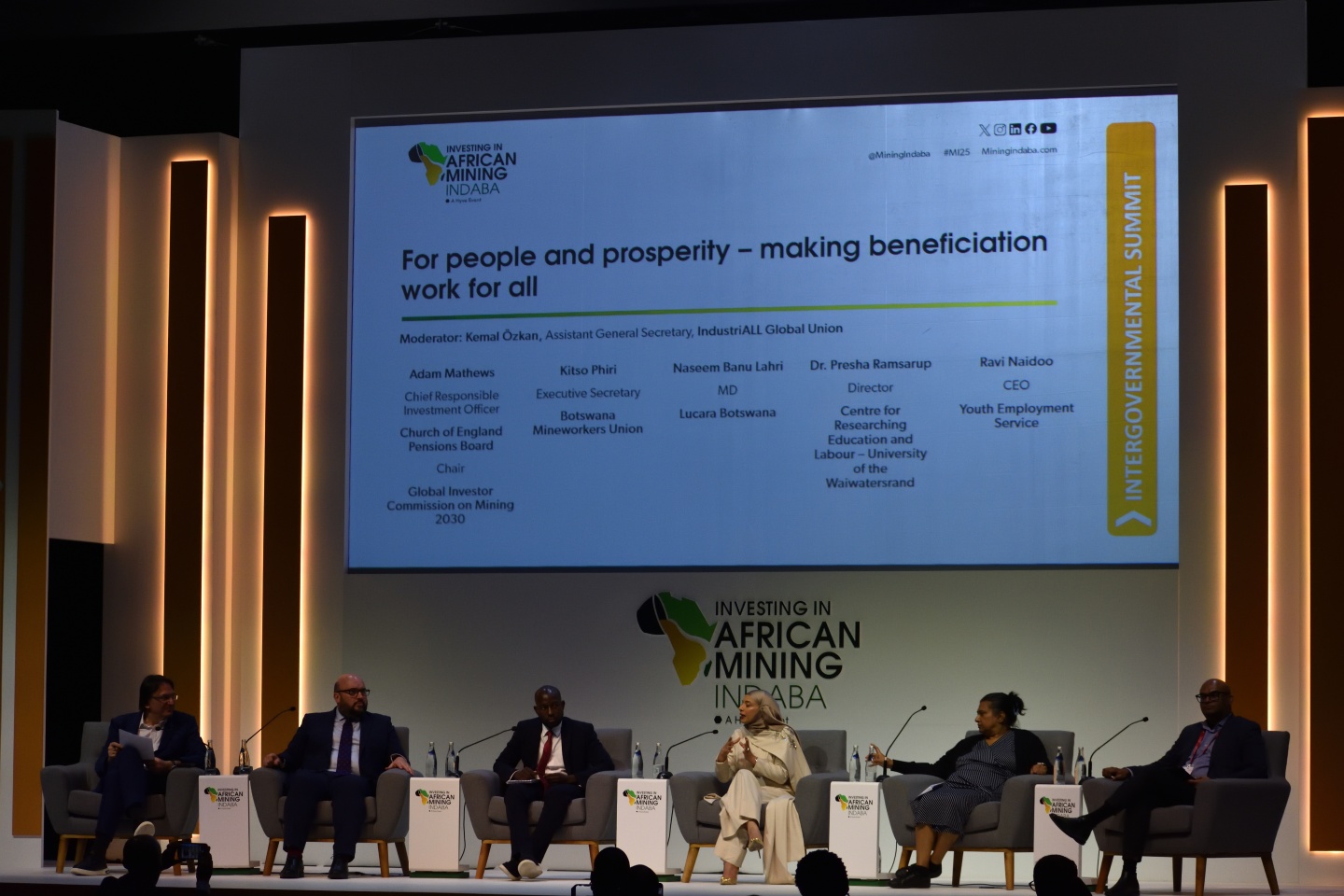6 February, 2025Discussions on the potential of critical transition minerals in anchoring Africa’s economic development and industrialization were amongst the most topical issues discussed at the Mining Indaba in Cape Town, 3-6 February.
Most Sub-Saharan African countries have critical minerals needed for the transition from high carbon to low carbon renewable energy sources. The critical minerals include bauxite, cobalt, copper, graphite, lithium, manganese, nickel, platinum group metals and rare earth elements. Some of the critical minerals are used in improving battery performance whilst others are used in the manufacturing of electric vehicles, wind turbines and other components needed for renewable energy industries.
IndustriALL Global Union, its affiliated unions that organize mine workers from Botswana, Ghana and South Africa, as well as ITUC Africa, took part in the discussions in conference sessions and plenary discussions. The unions emphasized the importance of beneficiating critical transition minerals to create jobs through investments and the setting up of manufacturing industries on the continent to process raw minerals. Further, regional value chains could be developed in battery manufacturing and electric vehicles value chains, and these could be linked to global value chains.
Currently, most minerals are exported in raw form which brings low value to the exporting countries. The unions cited the African Mining Vision (AMV) as an important guiding policy document which promoted unlocking the value of minerals and urged African countries to include the AMV into their national policies. Among other recommendations, the AMV calls for a “sustainable and well-governed mining sector” which promotes economic development, health and safety, “gender and ethnically inclusive, environmentally friendly, socially responsible and appreciated by surrounding communities.” The AMV is also one of the policies that can stimulate inter-African trade and regional integration through the African Continental Free Trade Area.
The unions stressed the importance of adherence to international labour standards and why the International Labour Organization’s (ILO) decent work agenda should be included in discussions on the mining of critical minerals. On health and safety, noting that fatalities in the mining sector in South Africa, for example, were declining, in artisanal and small-scale mining conditions were worsening especially in countries like the Democratic Republic of Congo. Thus the calls from unions for the ratification of Convention 176 on safety and health in mines - ratified by only six African countries.
Other key issues highlighted by IndustriALL and the unions included the adoption of mining standards that included multistakeholder interests like the Initiative for Responsible Mining Assurance (IRMA) audits. The audits ensured that workers and community voices and interests were respected by mining companies.
The unions said communities should be at the centre of the multistakeholder approach because in most instances they were the rightsholders to the land on which the mines were located. To protect community interests, the mining companies should have inclusive environmental, social, and governance policies.
On human rights due diligence, the unions called for the adoption of mandatory measures as voluntary initiatives were difficult to enforce. However, the trade unions said they will continue to campaign for mining companies to include United Nations Guiding Principles on business and human rights in their policies.
Glen Mpufane, IndustriALL director for mining said:
“A multistakeholder approach must be adopted on critical minerals and sustainable mining standards must be upheld to protect workers rights and interests.”
Kemal Özkan, IndustriALL assistant general secretary, said:
“There is potential for job creation as the African continent has vast resources of critical minerals, but as trade unions we must insist on human rights’ due diligence and decent work so that workers and communities can enjoy the benefits. Governance of mineral resources is equally important to stop illicit financial flows and corruption which are taking away resources from development.”








